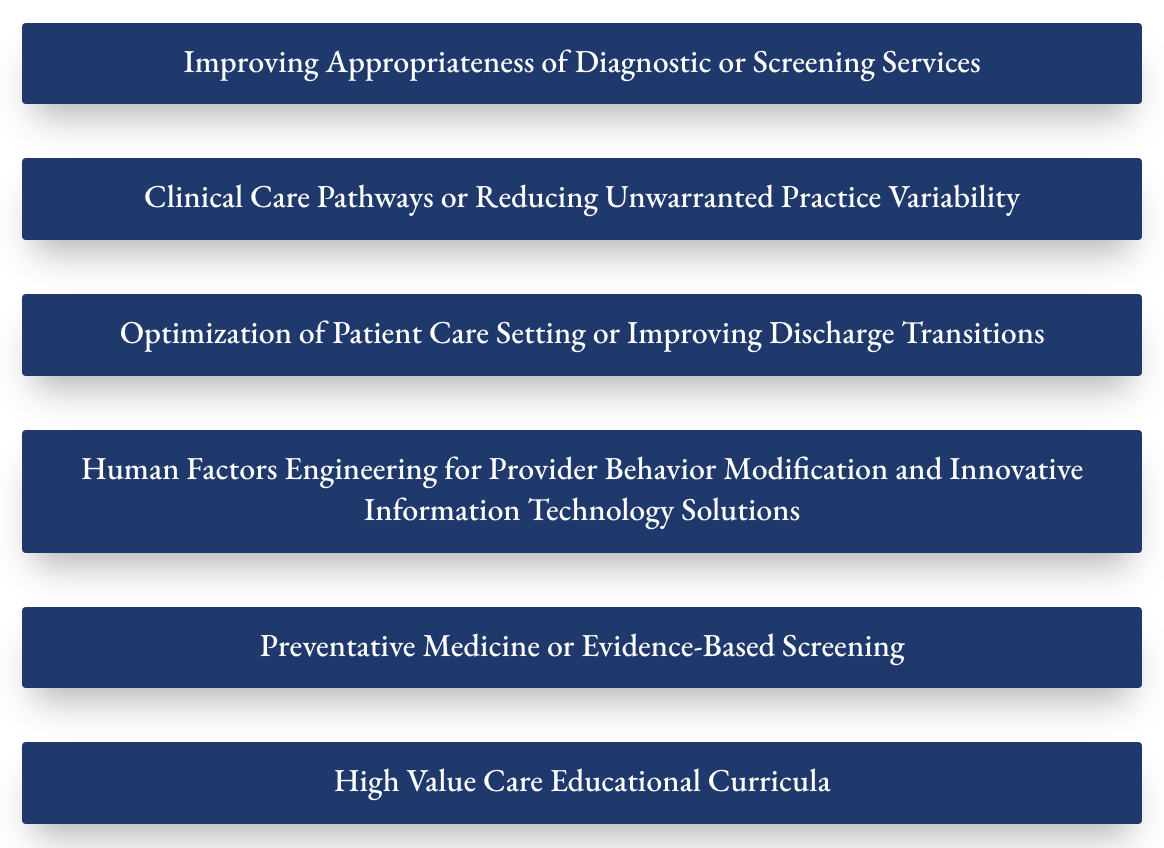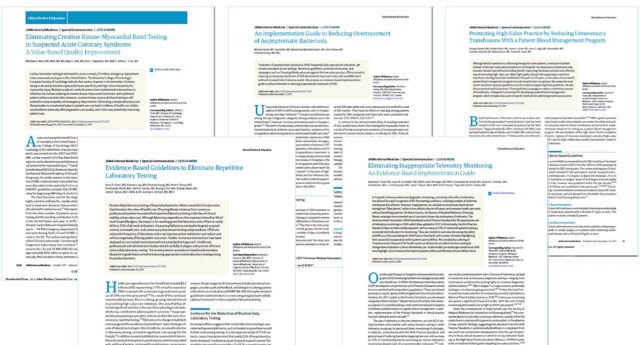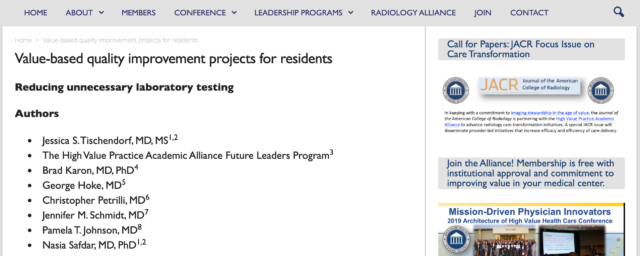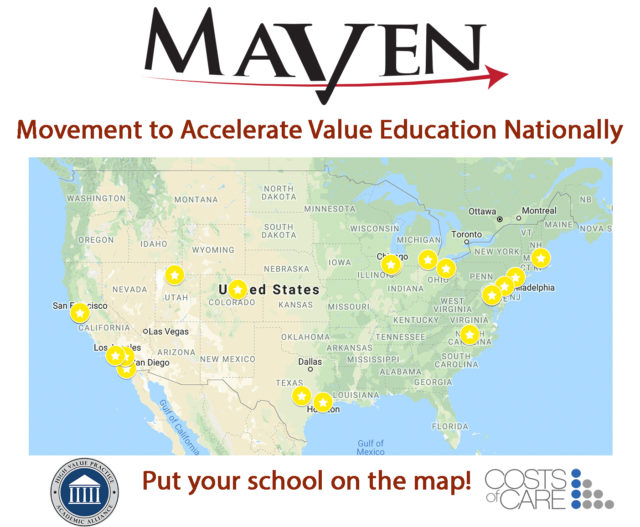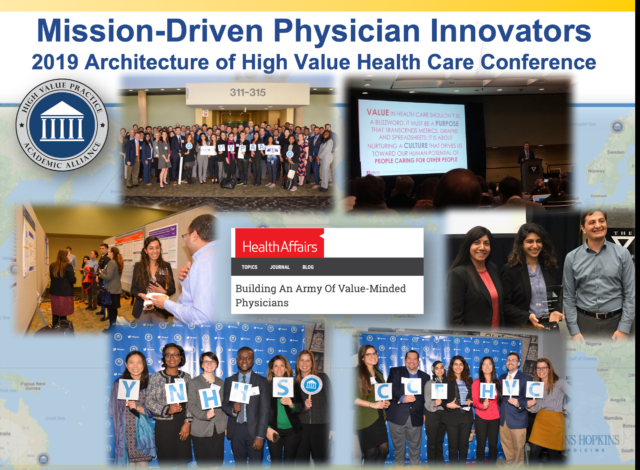From the 2021 HVPAA National Conference
Sabrina Matosz (UAB Huntsville Internal Medicine Residency Program), Jose Cavo, Chandler Stisher, C.C. Linder, Shivani Malhotra, Parekha Yedla
Background
Education during residency training has the greatest impact on long-term practices.
At UAB Huntsville Regional Campus, the Internal Medicine (IM) and Family medicine (FM) residency programs have a total of 24 and 36 residents, respectively. An annual High Value Care (HVC) curriculum was started at our institution in February 2020.
Objective
Our primary outcome was to increase awareness and interest in the concept of HVC and provide a foundation that residents can build upon. Our goal was to empower them to apply this knowledge in daily clinical practice.
Our secondary outcome was to see the impact of this education on the In Training Exam scores (ITE) taken over the course of two years by Internal Medicine housestaff.
Methods
The HVC curriculum was administered over 14 months and the educational sessions were taught by one IM and FM faculty member, two IM residents, and two FM residents during their respective didactic sessions.
The curriculum composed of 5 sessions during the resident didactics time covering the first five topics from the ACP HVC curriculum. In addition, we conducted 5 morning report (one hour) sessions that were interactive and case based. The topics covered included: Altered mental status, diabetic foot infection, hypertensive urgency, dyspnea/pneumonia, and “Things we do for no reason” (Choosing Wisely website) covering common clinical scenarios. These engaging sessions discussed health care waste, cost of care in inpatient and outpatient setting, and testing and guideline based management of the diseases.
In order to assess improvements in knowledge, we looked at the HVC portion of the ITE scores from 2019 and 2020 for a total of 17 residents (after getting permission from the program director). We also assessed the scores from the post survey questionnaire which was composed of 13 multiple choice questions related to their education.
Results
On the post survey, 93.3% of residents reported feeling more confident about HVC, recognizing waste in the health care setting and being able to apply the knowledge to patient care.
Using the standard Shapiro-Wilcox test for normality, we got a p-value of 0.63 which means that the differences are normally distributed. The two-sided t-test gave us a p-value of 0.2207.
Unfortunately, there is not a significant difference between the means of the before and after scores. Despite the p-value showing no significance, 12 of the total 17 residents showed improvements in the scores between 2019 and 2020. However, we did have some confounding elements that may have skewed the data. For e.g. residents call schedules causing them to miss some of the sessions, delay and lack of continuity of the curriculum due to the COVID-19 pandemic.
Conclusions/Clinical Implications
We wanted to investigate and change the perceptions of IM and FM residents regarding education in HVC and its importance in clinical practice. The house staff became more mindful in providing value based care over the year and improvements were seen in the ITE scores. Our future goal is to add more case based sessions that are applicable in the clinical setting and increase awareness among our faculty and Medical student’s.
